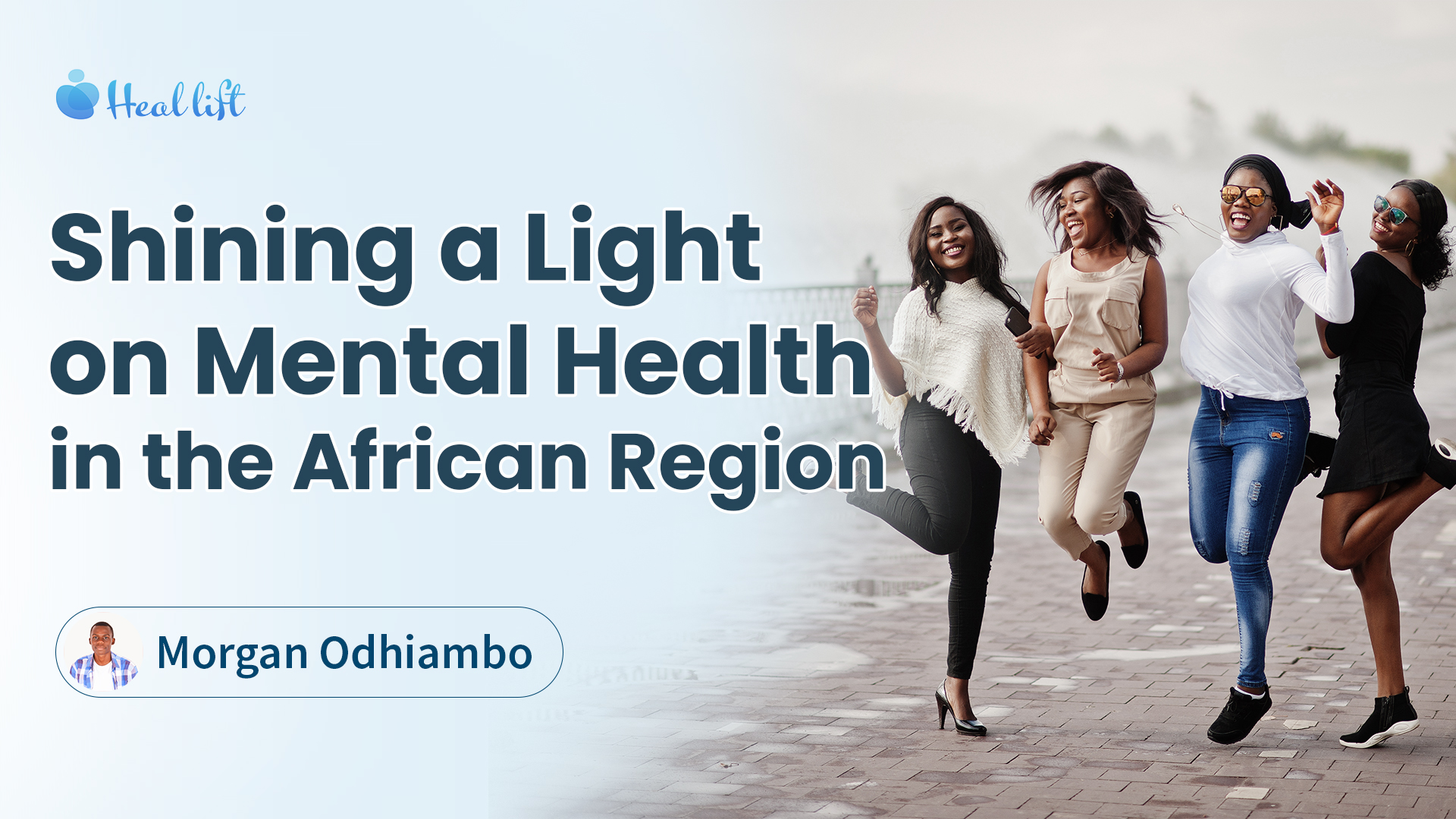HealLift - 09 Oct 2023
How to create a Supportive Workplace for Employee Mental Health
Insights from WHO's Mental Health at Work Policy

Heal Lift

Mental health is a topic that has gained prominence following the insurgence of COVID-19 pandemic. However, many African communities are still grappling with stigma and neglect when it comes to mental health. Depression is the most common mental disorder and the leading cause of disability worldwide. Yet it is often ignored and misunderstood as a medical problem. The theme for this year's World Mental Health Day is "Mental Health in an Unequal World".
An estimated 100 million Africans, including 66 million women suffer clinical depression. There is an increasing demand for mental health services in Africa especially among the vulnerable groups such as women and adolescents. However, according to the World Economic Forum, most African governments devote less than 1% of their health budget to mental health services. Therefore, we explore the current status of mental health in Africa, the challenges faced by people with mental disorders, and the actions taken to address this problem.
The Impact of African History and Culture on Mental Health Africa has a rich and varied cultural heritage that predates colonization. Traditional beliefs and spirituality have a significant relationship with mental health in Africa. Mental disorders have traditionally been associated with witchcraft or curses. Furthermore, stoicism and resilience have been regarded as virtues in African cultures. As a result, many perceive those who suffer from mental illnesses as weak.
The African Stigma Surrounding Mental Illness
More often than not, mental suffering exceeds physical pain. Human beings, as social creatures, need belonging and connection and not isolation. However, mental health issues are still stigmatized and misunderstood in many African communities. Exorcism is a common treatment used on people with mental illnesses in an attempt to drive out evil spirits. People become hesitant to seek help because they fear being alone or judged. Only when we accept to support people with mental health can we free them from this oppressive burden.
Barriers to Mental Health Care in Africa
Despite the high prevalence and impact of mental disorders, mental health remains a neglected and underfunded sector in Africa. In Most African countries, mental health receives less than 1% of the health budget leaving the majority of people with depression without access to effective care. The few mental health facilities that do exist have a poorly staffing ratio of one psychiatrist for every 100,000 people. The majority of insurance health plans don't cover mental health charges, so even if someone is able to locate a mental health expert, they might not be able to pay the treatment. Given the extreme poverty in the region, many people are forced to choose between providing for their family needs and paying for their mental health treatment. This forces them to suffer in silence and cope with their mental distress alone.
Importance of Integrating Traditional Healing
Traditional healing techniques have been used for a very long time in the African civilizations, and they are still appreciated and effective today. Understanding the cultural significance of traditional healing and how it might complement contemporary treatment is crucial for addressing mental health issues. Traditional healers had a holistic view of the human being, encompassing the mind, body and spirit. They used a combination of herbal remedies, meditation and prayer to achieve harmony and balance in the body.
Societal standards that prevent people from getting professional care can contribute to the stigma around mental health. On the other hand, people can be motivated to overcome their stigma by hearing personal experiences of recovery and overcoming obstacles. John Mwangi, who suffered abuse and torture in a Kenyan mental health facility, told Global voices about his horrific experience. He said he was "thrown in dark solitary confinement, whipped, sedated, stripped naked, neglected, verbally abused, locked up in flea infested space". He now advocates for the rights of patients in mental health facilities in Kenya.
The Role of International Organizations in Promoting Mental Health
In Africa, mental health is a critical issue that requires more attention and funding. International groups have set foot in various African nations to help destigmatize mental health and improve access to mental health services by providing financial and technical support. These organizations can now better understand and solve issues concerning mental health by collaborating with a variety of partners including, governments, NGOs, academia, and community groups. Among the well-known international organizations in Africa are the SMART Africa Project, the WHO Regional Office for Africa, and Africa mental health research and training foundation (AMHF).
African governments must align their policies with the WHO Action Plan 2013-2030, which aims to prevent mental health disorders among vulnerable groups and provide mental health care in community settings.
A call to Action
In conclusion, mental health in Africa has experienced numerous challenges. If left unattended, they can have devastating effects on the overall health of individuals. With recent technological advancements, fresh innovations have made it possible to enhance provision of mental health care. Two of these innovations are mental health apps and telepsychiatry. Through these platforms, individuals can have access to online therapists specialized in Cognitive Behavioral Therapy (CBT) and psychotherapy. Through these efforts we can shine light through the tunnel, and end the mental health crisis in Africa.
